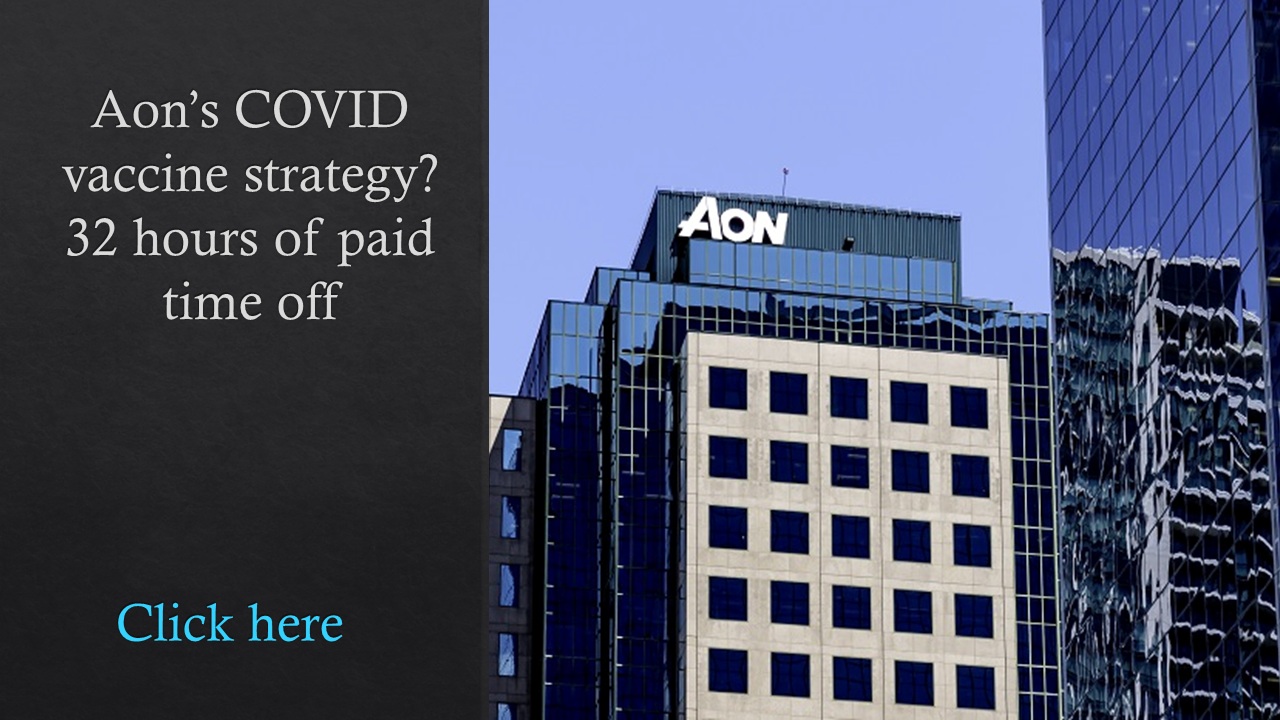
(Image: White House)
President Biden on Wednesday urged employers to give their employees paid time off to get vaccinated against COVID-19.
“I’m calling on every employer, large and small, in every state to give employees the time off they need—with pay—to get vaccinated and any time they need—with pay—to recover if they’re feeling under the weather after the shot,” he said during remarks at the White House. “No working American should lose a single dollar from their paycheck because they chose to fulfill their patriotic duty of getting vaccinated.”
As a part of that call for time off to get vaccinated, Biden announced a new tax credit to fully offset the cost for small businesses and nonprofits providing paid leave for employees to get vaccinated. For businesses and nonprofits with fewer than 500 employees, the tax credit will cover paid leave for up to $511 per day for up to 10 workdays, or 80 work hours, taken between April 1 and Sept. 30.
“As we move into the vaccination campaign focused on working-age adults, one concern I’ve heard from so many Americans is that they can’t afford to take the time off to get vaccinated or lose a day’s work because they are feeling slightly under the weather after their shot,” Biden said.
“Every employee should get paid leave to get a shot, and businesses should know that they can provide it without a hit to their bottom line,” he said. “There’s no excuse for not getting it done.”
Biden’s call on employers comes as a handful of companies have announced paid time off policies for vaccination—as well as education plans, financial incentives and more—in recent months to encourage their workers to get inoculated.
Aldi, Dollar General, Darden Restaurants and Trader Joe’s are all offering four hours of pay total for getting the two doses. Target is providing hourly employees up to four hours of pay—two hours for each vaccine dose—as well as free Lyft rides (up to $15 each way) to get to and from their appointments. Aon is offering all of its some 50,000 employees two days of paid time off for each injection.
Related: Still weighing vaccine incentives? Here’s what 12 employers have done
According to a recent Willis Towers Watson survey of 446 employers, roughly half (49%) are either offering employees incentives to get vaccinated or are planning or considering doing so. Among those, 39% are providing extra leave or vacation time to get vaccinated, and 46% are planning or considering doing so. Just over one in four (27%) are providing additional leave to employees who have negative reactions or get sick from the vaccine. Another 48% are considering doing so.
“Employers understand that by taking an active part in supporting the vaccination of employees, they can play a crucial role in ending the pandemic,” says Dr. Jeff Levin-Scherz, population health leader for Willis Towers Watson. “A common strategy for employers is to make vaccines an easy choice for employees by first helping convince them to get the vaccine and then making it easy for them to do so.”
 Employer efforts are seen as vital in helping boost vaccination numbers. Research has found that employees hesitant to get vaccinated are more likely to do so if their employer encouraged them or gave them a financial incentive. A recent survey from Eagle Hill Consulting also found that the majority of employees (57%) think employers should offer vaccine incentives to employees, and just over half (52%) think they should mandate it.
Employer efforts are seen as vital in helping boost vaccination numbers. Research has found that employees hesitant to get vaccinated are more likely to do so if their employer encouraged them or gave them a financial incentive. A recent survey from Eagle Hill Consulting also found that the majority of employees (57%) think employers should offer vaccine incentives to employees, and just over half (52%) think they should mandate it.
Related: Inside one HR leader’s aggressive COVID-19 vaccination plan
Employee vaccinations also are important for employers in getting back to business. The Willis Towers Watson survey, for instance, finds that more than eight in 10 employers (84%) agree immunization of the population will allow the country to reactivate the economy, and 80% of employers say it will allow them to move to a new normal in terms of returning to the workplace.
“Employers are eager to improve vaccination rates, contain any further spread of the virus and bring employees back to work,” says Chantell Sell Reagan, national pharmacy community clinical leader at Willis Towers Watson.